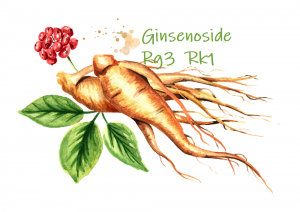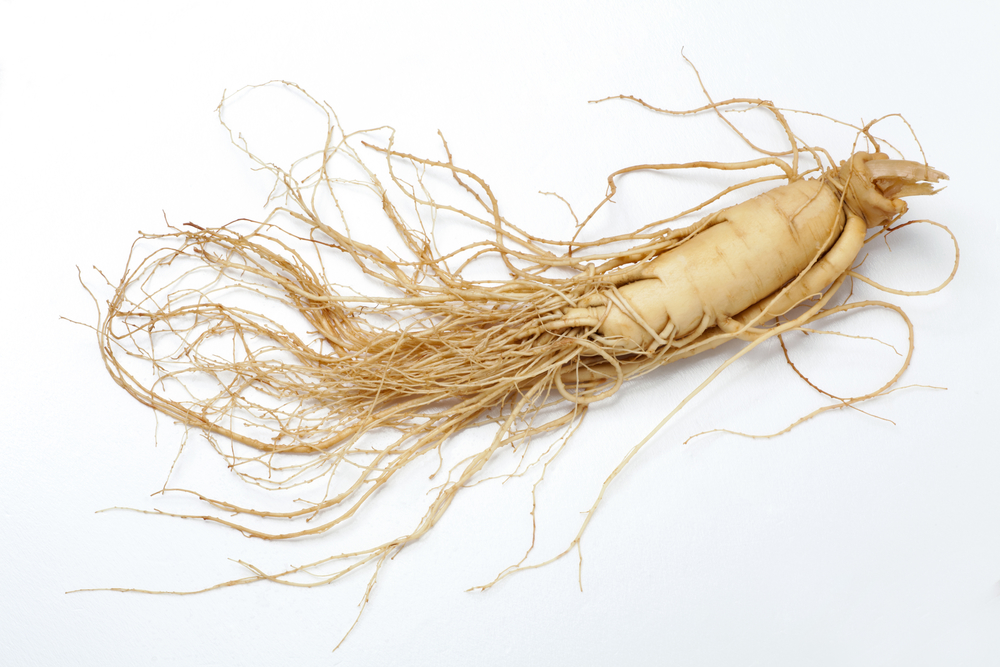Ginsenoside Rk1 may help treat degenerative diseases
Neurodegenerative diseases are aging-related neuron disorders which are incurable and difficult to treat. Some well-known neurodegenerative diseases include Alzheimer’s disease, Parkinson’s disease, and Huntington’s disease.
 Glutamate serves as an excitatory neurotransmitter in the nervous system, and one of its receptors, called N-methyl-D-aspartate receptor (known as NMDAR) is important for controlling synaptic and memory function. The overactivation of NMDA receptors can lead to excitotoxicity which is implied to be involved in several neurodegenerative disorders. As a result, NMDAR antagonists are an effective strategy to prevent and treat neurodegenerative diseases.
Glutamate serves as an excitatory neurotransmitter in the nervous system, and one of its receptors, called N-methyl-D-aspartate receptor (known as NMDAR) is important for controlling synaptic and memory function. The overactivation of NMDA receptors can lead to excitotoxicity which is implied to be involved in several neurodegenerative disorders. As a result, NMDAR antagonists are an effective strategy to prevent and treat neurodegenerative diseases.
A recent study, which appears in the Journal of Ginseng Research, shows that ginsenoside Rk1, a ginseng saponin, inhibits NMDA receptors in cultured rat hippocampal neurons.
Ginseng has long been used in Herbal Medicine to support health and wellness for over two thousand years. The health benefits of ginseng are attributed to the presence of ginseng saponins, known as ginsenosides. Ginsenosides are reported to possess many pharmacological properties, including anticancer and anti-inflammatory benefits.
Nowadays, scientists have isolated and identified about 120 kinds of ginsenosides. Compared with prototype ginsenosides that naturally exist in ginseng, rare ginsenosides converted through heating processing or other preparation methods are more bioactive and easily absorbed by the human body.
The research team consisting of researchers from different universities compared the inhibitory effects of five compounds (i.e., Rg3, Rg5, Rk1, Rg5/Rk1 mixture, and protopanaxadiol) on NMDA receptors in cultured hippocampal neurons. They found that ginsenoside Rk1 was the most effective inhibitors, indicating the potential of ginsenoside Rk1 as a novel inhibitor in preventing and treating neurodegenerative diseases.
Ginsenoside Rg5 and Rk1 are metabolized from ginsenoside Rg3. In the study, researchers found that ginsenoside Rg3 and Rg5 showed the same potency in protecting hippocampal dysfunction while ginsenoside Rk1 is the most effective ones among the five components.
Focusing on the medical potential of ginsenoside in treating neurodegenerative diseases, another research team from South Korea found that Korean red ginseng (the main active ingredients are Rg5 and Rk1) showed good efficacy as an adjuvant therapy to conventional anti-dementia medications in patients with Alzheimer’s disease.
The trial recruited a small population of 61 patients. They were randomly assigned to low-dose Korean red ginseng, high-dose Korean red ginseng or control groups. Researchers used three dementia assessment scales to evaluate the cognitive function of patients at the end of the 12-week trial.
They found that patients given with high-dose Korean red ginseng showed statistically significant improvement on two assessment scales, and Korean red ginseng showed good efficacy in the patients.
Though these studies presented the role of ginsenoside Rk1 in helping treat degenerative diseases, more research work needs to be done in the future.
One future task for researchers will be to map accurately the action mechanisms of ginsenoside Rk1 against degenerative diseases and to confirm its therapeutic effects in human bodies with large-scale clinical trials.


